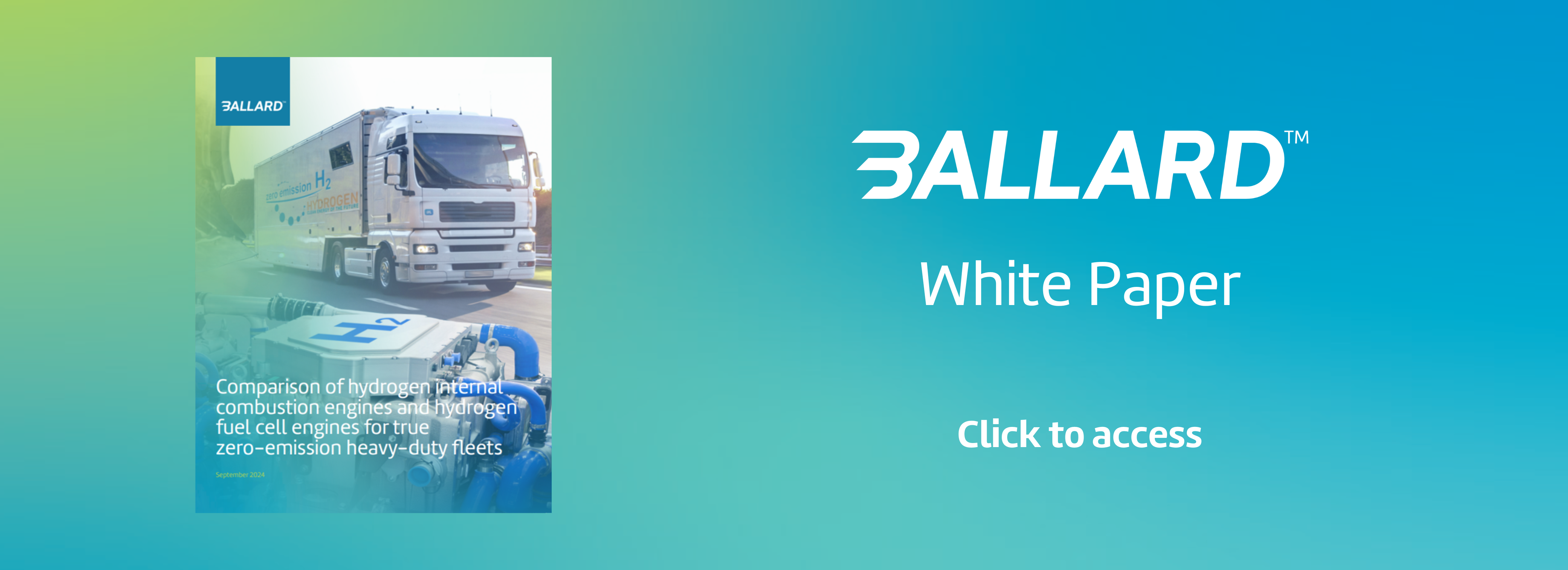
The debate between the benefits of hydrogen internal combustion engines (H2ICE) versus hydrogen fuel cells in the heavy-duty vehicle sector is not just about choosing the most advanced technology, but focusing resources on the technology which has the most potential to meet – and future proof – the requirements of heavy-duty transport.
As the industry seeks commercially viable pathways to meet decarbonization targets, the discussion comparing H2ICE and hydrogen fuel cells has emerged as complex and multifaceted - both contingent on short-term vs. long-term views.
In a new paper, Ballard Power Systems examines and compares direct H2ICE and fuel cell engines, focusing on their respective future costs. Its purpose is to provide a comprehensive analysis that supports decision-making regarding the most suitable technology for road transport, freight and logistics applications, considering operational criteria.
The crux of the matter is not just the technological capabilities of these two hydrogen-based solutions, but also their compatibility with the overarching goal of reducing carbon emissions in sectors that are both cost-sensitive and operationally demanding. Hydrogen, with its high energy density and no carbon content, presents a promising route to achieve zero emissions.
H2ICE, on one hand, are viewed by some as a simpler transition from traditional diesel engines, potentially leveraging existing engine and powertrain designs. This perceived compatibility suggests a lower upfront cost and simpler integration into current vehicle fleets, but this can be at the expense of efficiency. Hydrogen fuel cell engines, on the other hand, are viewed as more efficient and cleaner in terms of emissions but seen as requiring significant changes in vehicle design and higher initial capital investment.
For road transport and logistics firms, which tend to operate on tight margins, fuel is the highest operational cost. Fuel consumption – and therefore engine efficiency – is of paramount importance, especially for long-distance freight operators.
